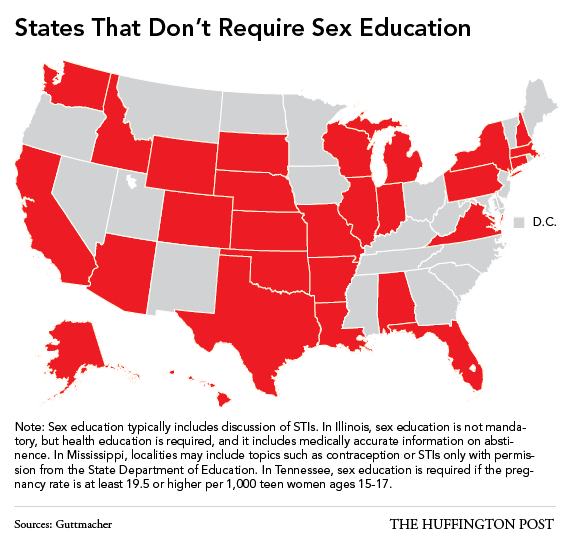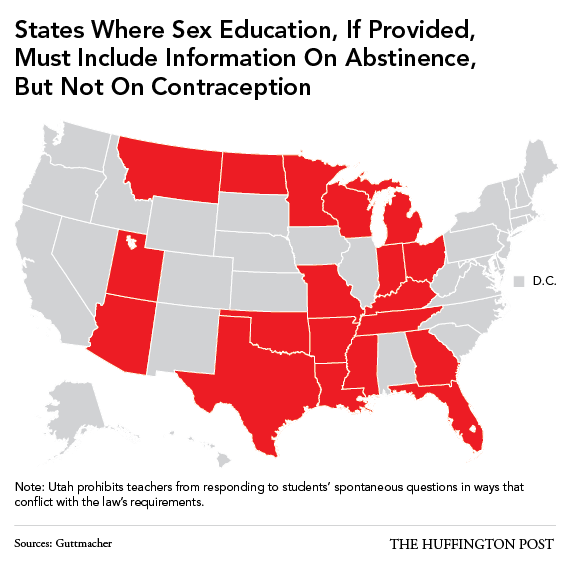A pair of proposed laws in Iran would reduce women to “baby-making machines.”
Amnesty International has decried the laws, which are designed to limit women’s reproductive choices. The bills are meant to enforce a traditional childbearing role upon Iranian women in the face of declining birthrates.
According to the human rights organization, the Iranian parliament approved both proposed bills by an overwhelming majority in August 2014. The bills are being amended before going to an executive council which can make them law.
The proposed bills are especially troubling because they seek to undermine Iran’s effective, long-standing women’s literacy and contraception programs. The U.N. called these initiatives part of one of the most successful family planning campaigns in history.
The intent of these laws is clear: to strip women of the ability to decide the directions of their own lives in the name of preserving the Iranian state.
But before we decry Iran as yet another Middle Eastern country with blatant disregard for women’s rights, we should take a step back and look at how the proposed laws compare to family planning policies in the U.S.
The results are disturbing.
For instance, one of the proposed bills would ban voluntary sterilizations, restrict abortions and block access to information on contraception.
Voluntary sterilization has been legalized for women in the U.S. over 21 since 1974. However, many states continue to take a questionable approach to abortion and contraception education.
According to the Guttmacher Institute, 28 states do not require sex education. In 19 states, if sex education is offered, courses are required to offer information on abstinence but not contraception.
If it’s higher birthrates the Irani government is after, Iran would do well to model its sex education programs after the U.S. After all, the U.S. has the highest teen pregnancy rate of any developed country.
Meanwhile, eight states in the U.S. ban abortion after 22 weeks, with many laws based on the medically disputed notion that at this point fetuses can feel pain. North Dakota even bans abortion after six weeks.
With the burden of pregnancy falling almost entirely on women, Americans should question our own government’s support of women’s rights before casting aspersions on Iranian policy.
The second proposed bill would promote early marriage and make the divorce process more difficult. Additionally, it would make it legal for employers to discriminate against female job candidates, especially single women with no children.
Here, Westerners have a sturdier moral foundation for criticism. The average marriage age for women in the U.S. is 27, a number which has been climbing steadily for decades. Meanwhile, employer discrimination based on gender has long been outlawed in our country.
Of course, many would dispute fair hiring and employment practices in the U.S. The pay gap between women and men and discrimination in the workplace are just two issues facing working women in America today.
Many Americans view the Middle East as one large bloc where women are oppressed in all aspects of life. But the outrage over Iran’s proposed laws stems from the fact that the country has until now been quite progressive in some aspects of women’s rights.
In fact, an examination of U.S. policy with regard to family planning, abortion and other women’s issues reveals Iran is in some ways more progressive than the U.S.
The U.S. does government does not yet consider “baby-making machine” as a woman’s official role in society. But as the Irani government has shown, progress can be undone in an instant.
It is up to U.S. citizens to constantly examine and critique our nation’s policies to make sure the same thing doesn’t happen to us.
Alex Mendoza is a 22-year-old political science and international studies senior from Baton Rouge. You can reach him on Twitter
@alexmendoza_TDR.
Opinion: America should re-evaluate family planning laws before criticizing Iran
By Alex Mendoza
March 16, 2015

More to Discover













